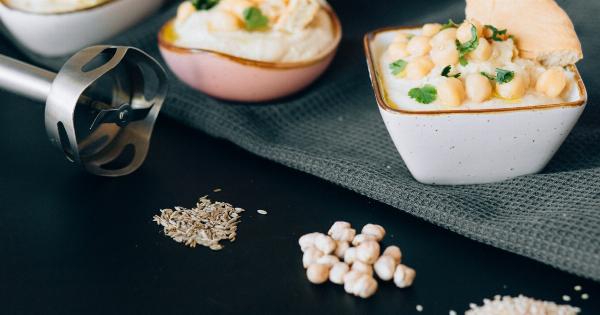When it comes to cooking oils, sesame oil deserves a prominent spot in your kitchen. This versatile and flavorful oil has been used in Asian cuisines for centuries and is now gaining popularity worldwide.
From enhancing the taste of your dishes to providing numerous health benefits, sesame oil is truly a must-have ingredient. In this article, we will explore the reasons why you should have sesame oil in your kitchen and how it can elevate your cooking to a whole new level.
1. Rich Nutritional Profile
Sesame oil is packed with essential nutrients that can contribute to your overall well-being. It is a great source of healthy fats, including monounsaturated and polyunsaturated fats that are beneficial for heart health.
Additionally, sesame oil contains essential vitamins and minerals such as Vitamin E, B-complex vitamins, calcium, iron, and zinc, which are important for maintaining various bodily functions.
2. Distinctive Flavor
One of the key reasons why sesame oil is so popular in cooking is its unique and distinct flavor. It has a rich, nutty, and slightly sweet taste that adds depth and complexity to a wide range of dishes.
Whether you are stir-frying vegetables, marinating meat, or dressing a salad, a drizzle of sesame oil can take your dish from ordinary to extraordinary.
3. Versatility in Cooking
Sesame oil is incredibly versatile and can be used in various cooking techniques. It has a high smoke point, which means it can withstand high temperatures without breaking down and becoming rancid.
This makes it suitable for stir-frying, deep-frying, and sautéing. Additionally, sesame oil can also be used as a finishing oil or a flavor enhancer in marinades, dressings, and sauces.
4. Health Benefits
Aside from its delicious taste, sesame oil offers a range of health benefits. It has been shown to reduce inflammation in the body, thanks to its high concentration of antioxidants.
Regular consumption of sesame oil may help improve heart health by reducing cholesterol levels and lowering blood pressure. Additionally, its anti-inflammatory properties can also benefit joint health and may help alleviate symptoms of arthritis.
5. Antimicrobial Properties
Sesame oil contains antimicrobial properties that can inhibit the growth of certain bacteria and fungi. It has been traditionally used in Ayurvedic medicine to treat various skin conditions, including eczema and acne.
Applying sesame oil topically can help moisturize the skin, promote wound healing, and reduce the risk of infections.
6. Supports Digestive Health
Incorporating sesame oil into your diet can contribute to a healthy digestive system. It acts as a lubricant and helps soften stools, preventing constipation.
Additionally, sesame oil possesses natural laxative properties that can aid in regular bowel movements. Its antimicrobial properties also help maintain a healthy gut flora, promoting overall digestive health.
7. Enhances Flavor in Asian Dishes
Sesame oil is a staple ingredient in many Asian cuisines, adding a distinctive flavor to traditional dishes. It is commonly used in Chinese, Japanese, Korean, and Indian cooking.
Whether you are preparing a stir-fry, sushi, or curry, sesame oil can lend an authentic taste and depth to your Asian-inspired creations.
8. Shelf Life and Storage
Sesame oil has a relatively long shelf life due to its high antioxidant content. However, it is important to store it properly to maintain its quality. It is best to keep sesame oil in a cool, dark place away from direct sunlight.
Additionally, sealing the bottle tightly after each use and refrigerating it can further extend its shelf life.
9. Types of Sesame Oil
There are two main types of sesame oil: toasted and untoasted. Toasted sesame oil is darker in color and has a more intense flavor, making it ideal for seasoning and finishing dishes.
Untoasted sesame oil, also known as light sesame oil, has a milder flavor and can be used for cooking at high temperatures. Both types have their own unique uses and can be enjoyed in a variety of culinary applications.
10. Culinary Inspiration
Whether you are a seasoned home cook or a beginner in the kitchen, incorporating sesame oil into your recipes can inspire creativity and elevate your culinary skills.
Its distinctive flavor and versatility can open up a world of possibilities, allowing you to experiment with different flavors and textures. So why not give sesame oil a try and discover the endless culinary delights it can bring to your dishes?.






























